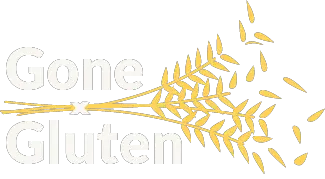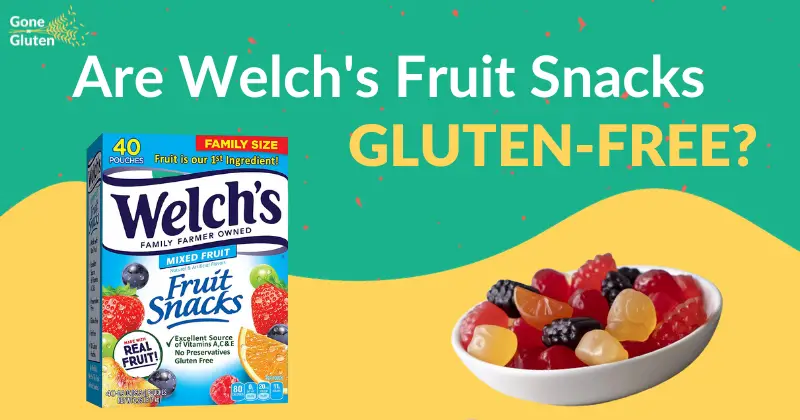The gluten-free diet has gone from a necessity to a global trend. I’ve heard many individuals ask, is gluten-free bullshit?
As someone who has been gluten-free for a few years now, it’s apparent where I stand. Does this mean I think everyone and their Mom should adhere to the diet? Maybe not.
Let me walk you through the research, and you can decide the answer to the question yourself.

Is Gluten-Free Bullshit?
There is a common misconception that a gluten-free diet is a fad. For specific individuals, it may be, but for the majority of people adhering to this diet, that is far from the case. The primary purpose of a gluten-free diet is to reduce symptoms in those with a wheat allergy, celiac disease, and gluten sensitivity.
Let’s dig deeper, find out what gluten actually is, who should refrain from consuming the protein, and if gluten sensitivity is real.
What Is Gluten?

Gluten is the name of a protein found in wheat, barley, and rye. It is known for mending the ingredients together and has gotten an increasingly bad rep over the years.
It is commonly found in the below foods:
- Bread
- Pasta
- Cereals
- Baked Goods
- Beer
While these foods seem apparent, gluten disguises itself with several different names. Triticale, durum, emmer, spelt, and einkorn are just a few.
Why Go Gluten-Free?

While some individuals cut out the protein because they feel it will help them live a healthier lifestyle, others refrain from it due to serious health issues. Celiac Disease is one of them.
This is an autoimmune disease in which gluten in the bloodstream damages the lining in the small intestine, making it difficult for the body to absorb the proper nutrients from food.
If left untreated, the disease could cause severe damage to the body and lead to Infertility, nerve damage, arthritis, seizures, and more. The only way to manage celiac disease is to follow a strict gluten-free diet.
A wheat allergy is another reason to go gluten-free. A wheat allergy is a reaction to proteins in wheat that cause typical allergic reactions such as swelling, itching or irritation of the mouth or throat, hives, itchy rash, or swelling of the skin, and nasal congestion.
A gluten-free diet will help you avoid wheat and other gluten-obtaining grains that could enter cross-contamination.
There are several other reasons why a person may choose to cut gluten from their diet, and gluten sensitivity is one of them.
Is Gluten Sensitivity a Real Thing?

Well, my digestive system and I would like to say yes, but I understand that alone may not be convincing enough.
Medical News Today, Healthline, and Harvard state that non-celiac gluten sensitivity is an actual condition and affects 1-3% of the world population.
Gluten sensitivity or intolerance is when a person’s body reacts negatively after consuming gluten. Symptoms include:
- Joint pain
- Stomach pain
- Fatigue
- Headaches and migraines
- Rashes
- Irregular bowel movements
- Brain Fog
There is no test for gluten sensitivity; it has to be diagnosed by eliminating the gluten protein from your diet. Because of this, some individuals may feel better simply because they are reducing the number of processed products that they eat not necessarily because of the removal from gluten.
The key to discovering if you have a sensitivity is to slowly bring gluten back into your diet and see if your body has an adverse reaction.
Are Gluten-Free Foods Healthier?
It depends on what kind of food we’re talking about. Eating an unprocessed food diet is better for everyone. Natural foods such as nuts, meat, fruits, vegetables, and seeds are gluten-free. If you’re eating this daily and cutting out refined products, then yes, it is healthier.
Don’t be mistaken; the processed gluten-free products are no healthier than the original item. In fact, they may be worse for you as gluten is often substituted with refined sugars.
Let’s hear what Dr. Oz has to say on the matter.
Who Doesn’t Need to Follow A Gluten-Free Diet?
If gluten doesn’t affect your body, keep the gluten-free products out of your home and your money in your wallet. They are no better for you than the original and tend to be twice as expensive.
If you think gluten may be bothering you, see a health care provider before just taking on the diet. If gluten is the culprit, you must still be consuming it to be accurately tested for celiac disease.
If you are looking to this diet to lose weight, try first removing all processed foods before strictly removing gluten.
Are There Risks To Trying a Gluten-Free Diet?
If you remove gluten from your diet without replacing it with the proper vitamins, you could experience a nutrient deficiency. Whole grain products (often containing gluten) are a primary source of our fiber and Vitamin B intake.
If you replace products like bread and pasta with gluten-free versions, there is a chance of weight gain.
If it’s not a necessity for your health, following a gluten-free diet could also add a lot of unneeded stress. Refraining from gluten means becoming a pro-label reader, as the protein can sneak its way into the food we wouldn’t usually think contain it.
Conclusion
Several medical experts tell you that for those who need to be on one, a gluten-free diet is not bullshit; it is one of the only methods to manage symptoms and decrease the risk of severe health issues.
Rember, if you’re looking to this diet to lose weight, try cutting out processed foods first. Don’t be fooled by the gluten-free label; the product is no healthier than the original version.
For more tips on living a gluten-free lifestyle, check out Gone Gluten.




BTW once you start quoting Dr Oz as a source you’re basically tagging your article as 🐂💩
Gluten DOES NOT enter the blood stream.” When was the last time anyone got lab results with their blood level of “gluten”?